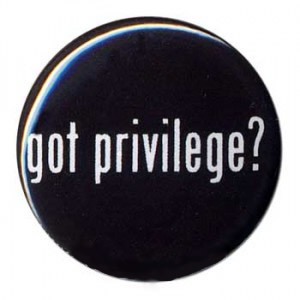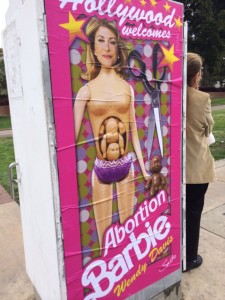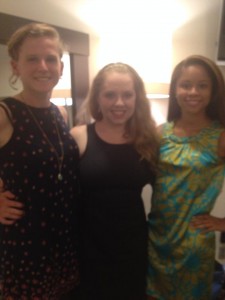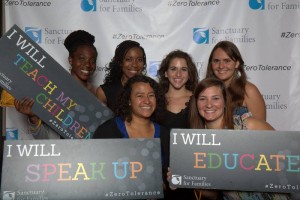I, Candice Olivia Nelson, would like to propose a swift and painful death to the word “sassy.” It’s a fun way to place someone into a box where they have to act like a court jester 100% of the time and, should they show any emotion, it’s not taken seriously. My particular axe to grind is with the media, where the characterization of someone that is “sassy” is flat out painful. Which brings me to my least favorite use of the dreaded s-word: the Sassy Black Friend™.
Popular on television and movies, the Sassy Black Friend™ is very easy to identify. Ninety-nine percent of the time, the friend is a woman, her wardrobe consists of bright skinny jeans and an attitude, and her favorite activities include neck swerving, calling her white best friend “girl,” and making snappy one liners. Oh, and she is rarely given a love interest, gets to show any emotions (especially anger, lest she become the Angry Black Woman), and the character is often most disliked by the fan base. Now, it’s not to say that a black woman isn’t or can’t be like this; I happen to appreciate snappy one liners and I call my friends “girl” all the time. But it’s a pretty big problem when many black female characters act like this. I thought it was a passing thing, but a quick glance at Disney Channel shows that they start the stereotypes young so that they can keep it fresh. It’s utterly ridiculous, insulting, and reminiscent of depicting black women as a “mammy” stereotype. A piece of media with the Sassy Black Friend™ is a very good indicator that a creator is not only lazy and very bad at their job, but has probably never interacted with a black person.
Now, why am I talking about the Sassy Black Friend™? For two reasons. First relates to the June 6 premiere of Orange is the New Black on Netflix. For those that might not have heard of the show, the basics are that a white woman is serving about 15 months in prison for being part of a drug ring with her ex-girlfriend years prior to her incarceration. However, the most interesting thing about the show is not the main character, who most fans of the show consider the least interesting character, but all the other women in prison with her. The show does a particularly great job in making all of their women of color characters INTERESTING, which is a miracle because it could easily fall into dull old stereotypes. Their black characters aren’t just one-liner spouting plot devices, the Latina characters aren’t just spicy stereotypes, and it actually addresses the impact poverty and oppression had a role in putting most of the women in prison. Their characters may be witty, but that’s not their characterization; they are more than a one-liner because they’re people with diverse and interesting experiences that landed them in prison. Also, it’s a show that *radically* has a black transgender woman, the overwhelmingly great Laverne Cox, playing a transgender woman (a transgender woman is not a man in a wig, so stop casting men in wigs to play transgender women). And to prevent this from sounding like a paid advertisement, I feel like it’s important to mention that television networks have finally caught on that non-white women are actually complex people and not stereotypes based off of porn categories, Law and Order episodes, or Disney Channel shows. Shows are slowly, but surely, introducing full casts made up of all or have their main characters being primarily people of color, or POC (shoutout to Friday Night Lights, Sleepy Hollow, Elementary and Grey’s Anatomy) that have personalities outside of being a racial stereotype. Further shoutout to ABC, who’s leading the pack and not only gave Shonda Rhimes the power to control Thursdays, but is introducing four shows that have mainly POC characters.
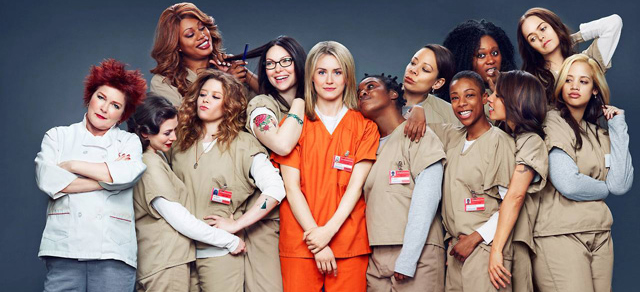
The second reason, which brings it back to the Moxie Project, is thinking about feminism and the importance of representation in the movement. The reason I didn’t mention the representation of white women in this post is because, quite honestly, white women are the face of feminism. Right off the top of my head, I can think of about 20 white women characters on television and in movies that are lauded for being great depictions of being empowered and aren’t bland damsels in distress in impractical clothing. Which is great…if you’re a white woman. As much as I like Amy Poehler and Margaery Tyrell (I might watch too much television), I’m sick of seeing them treated as though they represent all women. I’ve stopped pretending that watching another white woman go on a journey of self discovery and get character development, while her East Asian friend is shoved into the background and given a stale personality, is a step in the right direction for all women, and it’s time my fellow feminists also acknowledge that it’s not. It’s simply mirroring the mainstream feminist movement and the idea that when white women’s concerns are addressed, sexism is magically solved. Feminism needs to stop shoving women of color under the rug and acting as though sexism is the only thing all women worry about or that the struggles of upper-middle class white women are applicable to everyone in the movement.
I’ve enjoyed my time at Legal Momentum so far,and I truly value the experience. However, one of the more jarring realizations was that the board of directors has more men than women of color. It is really important that feminism and feminist non-profits/companies seriously consider how well they represent all women, especially as a feminist organization. Feminism without intersectionality is not the feminism I want to be a part of.
I am no longer willing to play the sassy black sidekick in a movement that is meant to include all.
*That’s not to say the show is 100% criticism free. The show makes one too many prison rape jokes, it sanitizes the prison (especially private prison) experience, they could do better with Asian representation, and Jason Biggs’ character is terrible and has way too much screen time. Also, it’s pretty sad that I have to rely on a show about women in prison to see any decent representation, but I take what I can get.


